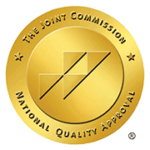Introduction
Depression is a common but serious mental health condition that affects millions of people worldwide. It goes beyond just feeling sad or having a rough day. Symptoms of Depression can interfere with daily life, causing both emotional and physical problems that can lead to significant distress. Understanding the symptoms of depression is crucial for early intervention and treatment. In this article, we’ll discuss the key symptoms of depression that you should never ignore, backed by expert insights and current research.
Understanding Depression
Depression, also known as major depressive disorder, is a mental health condition characterized by persistent sadness and hopelessness as well as a loss of interest in things that used to be enjoyable. Unlike the occasional bouts of sadness that everyone experiences, depression is more severe and long-lasting. It affects how a person feels, thinks, and handles daily activities like sleeping, eating, or working. Recognizing the symptoms of depression early can be the first step towards getting the help needed to manage and overcome this condition.
Common Symptoms of Depression
Depression manifests in various ways, and symptoms can differ from person to person. However, there are several common signs that experts agree are indicative of depression.
- Persistent Sadness or Low Mood: One of the most noticeable symptoms of depression is a continuous feeling of sadness or emptiness. This mood doesn’t lift and often feels overwhelming. It’s not just about having a bad day; it’s a feeling that persists for weeks or months.
- Loss of Interest or Pleasure in Activities: People with depression often lose interest in activities they once enjoyed. This can include hobbies, socializing, or even sexual activities. This symptom, known as anhedonia, is a core feature of depression.
- Changes in Appetite and Weight: Significant weight loss or gain can also be a symptom of depression. Some people may lose their appetite entirely, while others might eat more than usual to cope with their feelings.
- Sleep Disturbances: Depression can lead to various sleep issues. Some people may experience insomnia, finding it difficult to fall asleep or stay asleep, while others might sleep excessively, struggling to get out of bed in the morning.
- Fatigue and Loss of Energy: Even small tasks can feel exhausting for someone with depression. This overwhelming fatigue isn’t just being tired; it’s a deep, persistent lack of energy that makes daily functioning difficult.
- Feelings of Worthlessness or Guilt: A person with depression may have an ongoing sense of worthlessness or excessive guilt. They might fixate on past failures and blame themselves for things that are not their fault.
- Difficulty Concentrating: Depression can make it hard to concentrate, make decisions, or remember things. This cognitive impairment can affect performance at work or school and make even simple tasks seem impossible.
- Irritability or Restlessness: While depression is often associated with sadness, it can also cause irritability and restlessness. A person might feel on edge, angry, or frustrated, often without a clear reason.
- Physical Aches and Pains: Depression doesn’t only affect the mind; it can also cause physical symptoms like headaches, muscle pain, and digestive issues. These symptoms often don’t have a clear medical cause and don’t improve with treatment.
- Suicidal Thoughts or Behaviors: In severe cases, depression can lead to thoughts of death or suicide. This is a medical emergency; anyone experiencing these symptoms should seek immediate help.
Risk Factors and Causes
Depression can affect anyone, but some factors increase the risk. Genetics, brain chemistry, hormones, and life events like trauma or loss can contribute to the development of depression. Chronic illness, substance abuse, and certain medications can also trigger depressive symptoms.
For example, depression is more common in women than men, with some studies suggesting that this might be due to hormonal factors. Additionally, older adults are at risk, especially when living with chronic conditions or experiencing significant life changes such as retirement or the loss of a loved one.
Why Recognizing Symptoms is Important?
Recognizing the symptoms of depression early can lead to better outcomes. Untreated depression can worsen over time, leading to more severe health issues, including the risk of suicide. According to the CDC, depression is one of the leading causes of disability worldwide and can have a significant economic impact due to lost productivity.
Moreover, studies show that nearly two-thirds of people with depression do not seek or receive the treatment they need. This can be due to stigma, lack of awareness, or the symptoms themselves, which might make reaching out for help feel impossible.
Treatment Options
The good news is that depression is treatable. Common treatments include:
- Therapy: Cognitive Behavioral Therapy (CBT) and other forms of talk therapy can be very effective in treating depression by helping individuals change negative thought patterns and behaviors.
- Medication: Antidepressants, such as SSRIs and SNRIs, can help balance chemicals in the brain that affect mood and emotions. These are often used in combination with therapy.
- Lifestyle Changes: Regular exercise, a healthy diet, adequate sleep, and reducing stress can also help manage symptoms.
Conclusion
Depression is a complex and serious mental health condition that affects millions of people globally. Understanding the symptoms—such as persistent sadness, loss of interest, sleep disturbances, and thoughts of self-harm—is crucial for early diagnosis and treatment.
If you recognize these symptoms in yourself or others, it’s important to seek professional help immediately. Early intervention can significantly improve outcomes, leading to better condition management and a higher quality of life. Remember, depression is treatable, and reaching out for help is the first step towards recovery.
Never be reluctant to seek medical attention from a professional if you believe that you or someone you know is suffering from depression. For more information and resources, visit Mission Connection Healthcare.
Frequently Asked Questions (FAQs)
What are the most common symptoms of depression?
Persistent sadness, changes in sleep and appetite, exhaustion, loss of interest in activities, feelings of worthlessness, and trouble concentrating are among the most typical symptoms.
Can depression be treated without medication?
Yes, depression can often be treated with therapy alone, especially Cognitive Behavioral Therapy (CBT). However, medication may be necessary in some cases, and combining both treatments can be most effective.
How can I help someone who may be depressed?
You can help by offering support, encouraging them to seek professional help, and being patient. Listening without judgment and assisting them in finding resources can also be beneficial.







